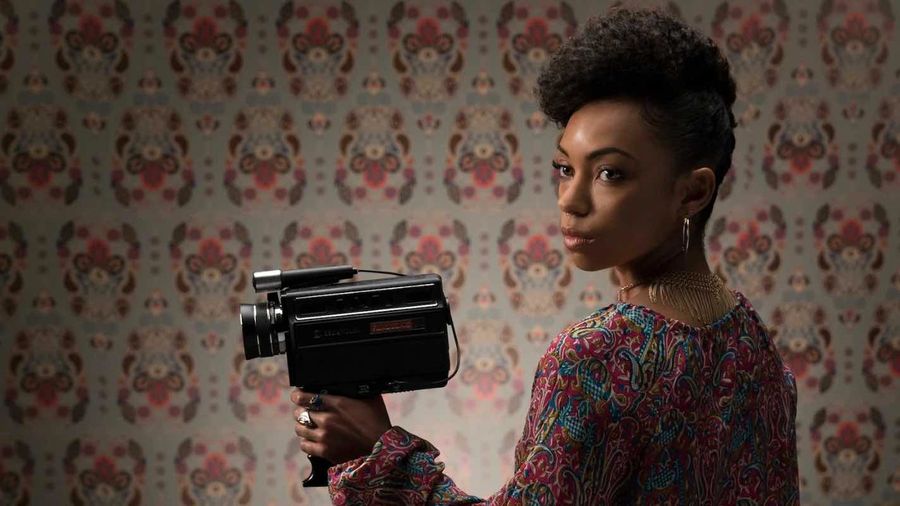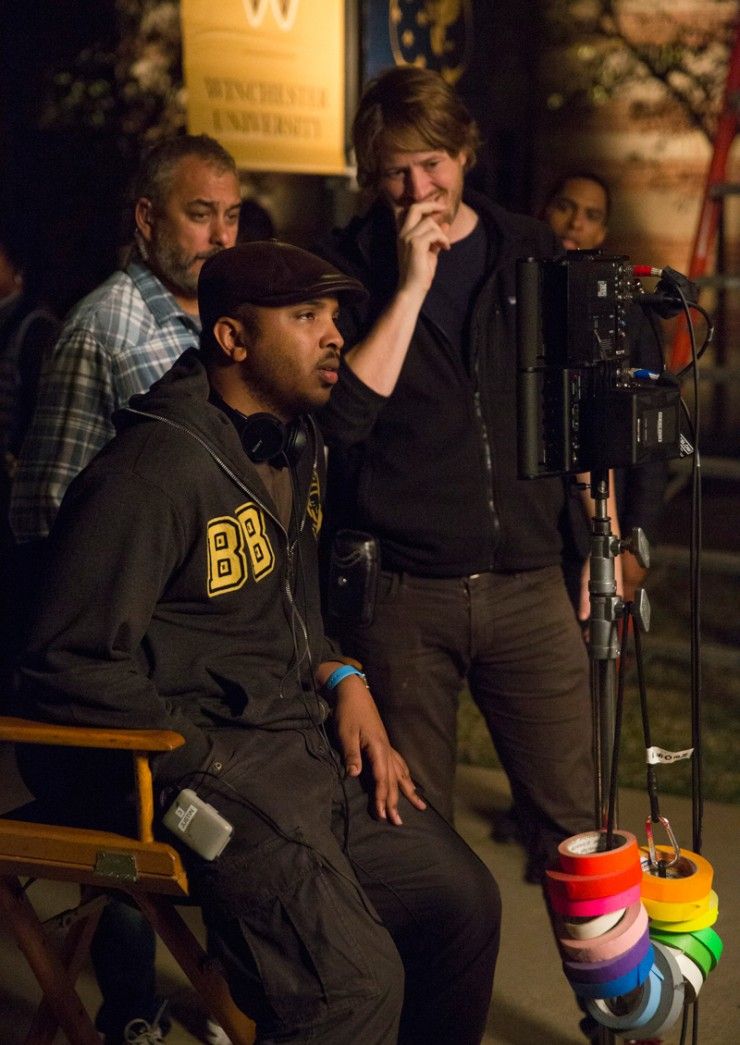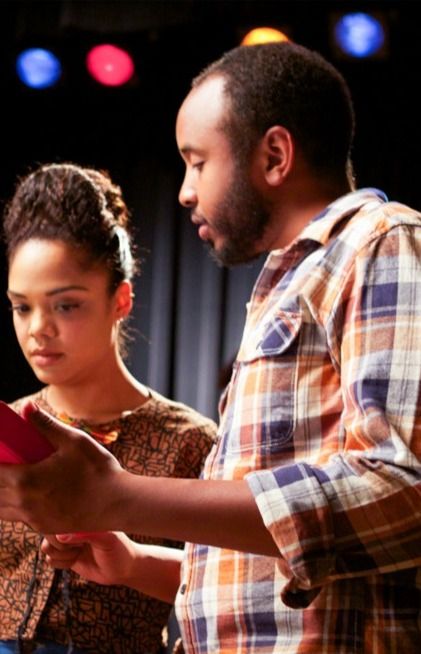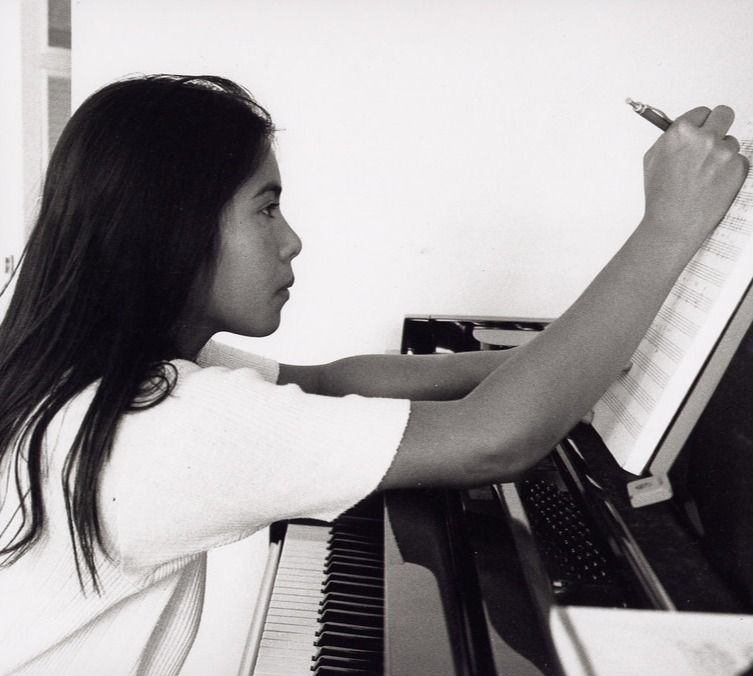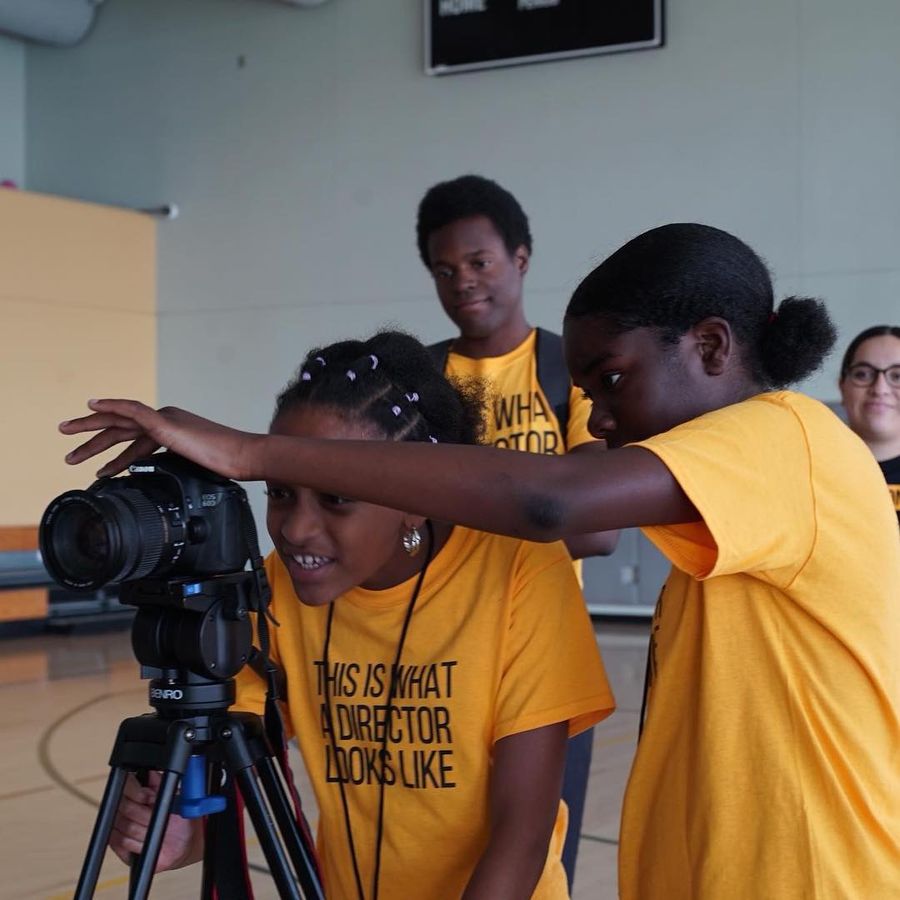The secret to Justin Simien's success: he doesn't play by the rules. The director built his legacy on taking great risks with great friends, including Lena Waithe and Sight Unseen’s Angel Lopez. Here's a guy who used his tax return to fund a concept trailer for his debut film, Dear White People—a viral name he brilliantly came up with after cutting teeth in film publicity before filmmaking. It would quickly become a franchise that would discover some of today's biggest stars—Tessa Thompson, anyone? Not to mention, see the likes of Barry Jenkins, Nisha Ganatra, and Kimberly Peirce step away from the silver screen to shoot their shot at the TV series.
What is it about Simien that makes the hottest people in Hollywood trust him? As he’ll tell you, honesty and artistic integrity is at the center of everything he does. And in an industry that thrives on illusion, that’s rare to come by. Here’s Simien in his own words—raw, uplifting, and expressing his truth.
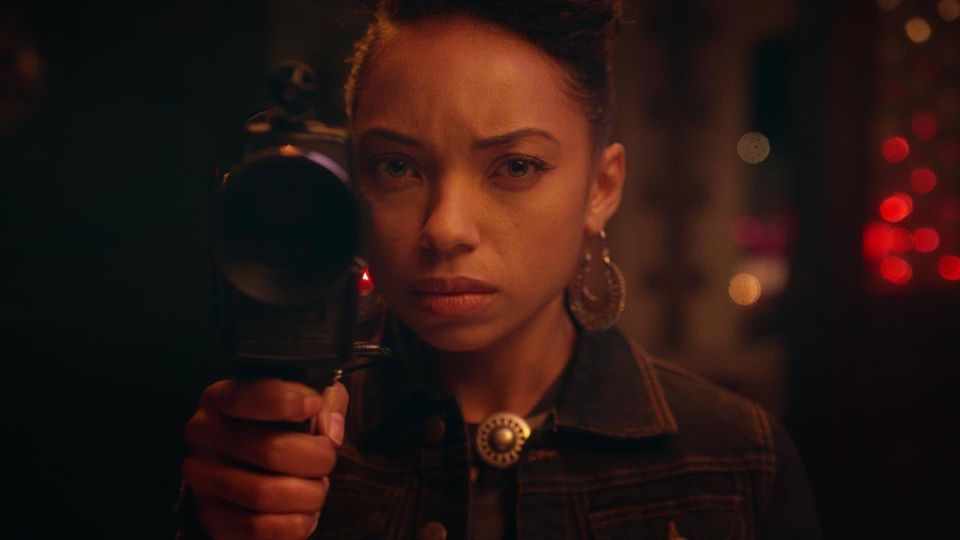
"I don’t make you feel comfortable about the things that shouldn’t make you feel comfortable. I’m always trying to get at something true."
When you’re approaching creative collaborators for Dear White People, what do you look for?
Justin Simien: I look for people who are hungry. When I say hungry, I mean people who have been chomping at the bit for an opportunity. Making TV is just so challenging. There are incredible moments of course, but you got to be a little hungry to really make an impression on a show like Dear White People. The name of the game is cinema and we’re trying to do cinema every episode. I used to be young and hungry for years, but nobody could see me, nobody cared, and nobody was crazy enough to give me a real shot. So when I'm looking for collaborators, I look for people of color, women, and people who are still not getting that shine that they deserve.
What’s your leadership style on set?
My leadership style is really about creating parameters and letting people know where they stand. They need to know that you’ve got them should they stumble, should they have a question, should they run up against something. Dear White People has a unity to it. I create these books of shots that we use over and over, with what they’ve historically meant in the series. There have also been color bibles. I direct the first episode of each season and I take the jazz metaphor pretty far. My episodes are about laying down a melody, and I hope that everyone else will riff and experiment and do a trumpet solo. I’m there as a sounding board and sometimes I’m there to help problem-solve and get certain obstacles out of a director’s way.
Is there a difference in your approach to collaboration when working with feature directors like Barry Jenkins? Do you learn anything from them?
Oh god yes. Whenever I get the chance to see a master of the craft, like Barry, work, it’s not what you expect. The thing that I realized is that all of the rules about what a director does and how a director does it is nonsense. There’s as many styles of directing as there are directors. Can you justify a creative choice in the story? Okay, great. Does it honor the boundaries that we set for what the show is? Okay, go for it.
What do you do if a director pitches you something truly out-of-the-box that might not work?
I love out-of-the-box. Sometimes there’s an ambition to do something we can’t afford to do or it’s just not possible. At that point, it’s my job to come in and make a recommendation and engage in conversation. It’s about helping the directors do it themselves and the reason for that is that you get a more personal show. The thing about the movie Dear White People is that it’s so personal to me. That’s what made the movie. So with the show, that was an important thing to adapt. Give the directors the keys. Give a writer the keys. Empower them to put themselves into it.
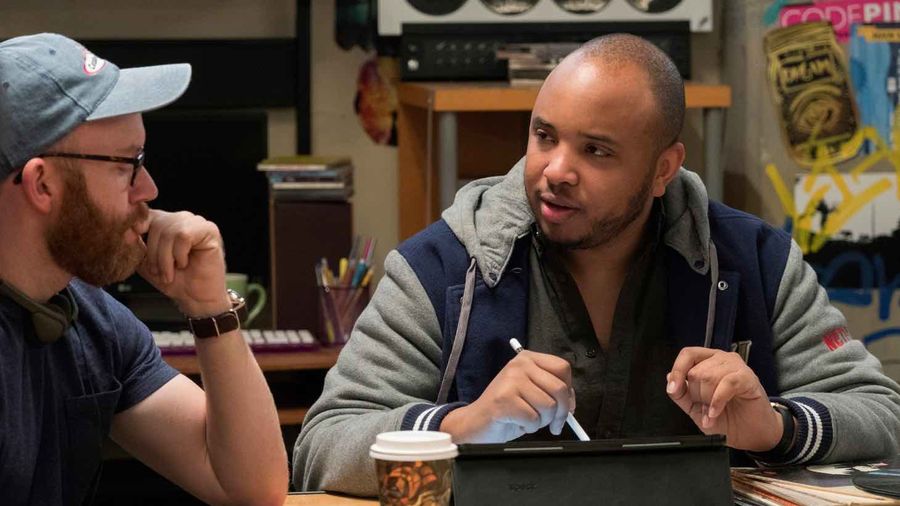
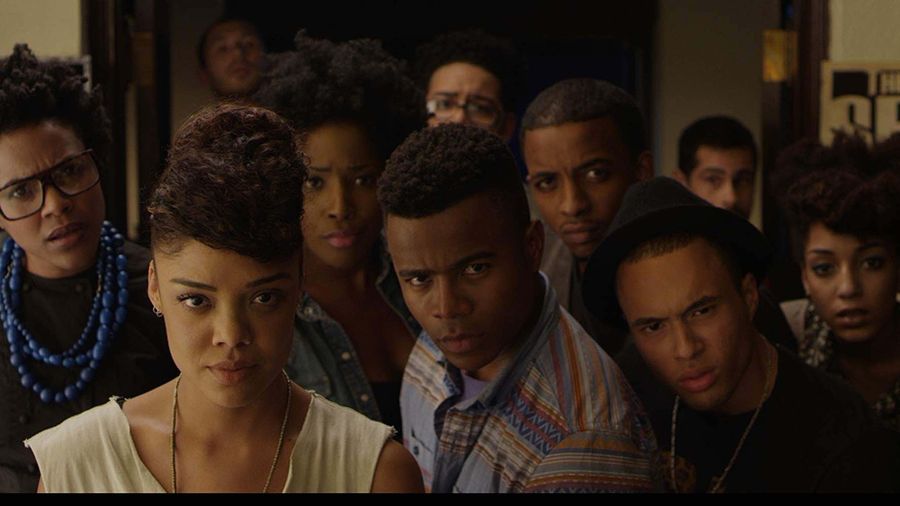

Would you say that all the work you’re doing has to be personal?
Yeah, it has to be. I don’t know what the point would be otherwise. I’m not a craftsman. I’m an artist. If you take an artist and you make them be a craftsman, it’s like a cancer. I didn’t come here to paint in the lines. I’m not comfortable doing that. Everything I do has to come from the heart in some way, or else it’s uninteresting.
What are the responsibilities of an artist?
The main responsibility of an artist is to tell the truth. That’s a very esoteric statement because it varies depending on what kind of artist you are. But when you’re the artist telling your truth, you also know the difference between that and doing something that gets you popular. I try to do both as much as I can. Tell the truth and couch it in a way that people can take it, want it, and accept it as pop culture. I know that what I’m doing as an artist is supposed to be in pop culture. I’m not in a little gallery. Millions of people watch the show, so I have to figure a way to do both. I don’t pull punches. I don’t lie. I don’t make you feel comfortable about the things that shouldn’t make you feel comfortable. I’m always trying to get at something true.
If you can’t figure out the ultimate truth about the work, then just tell the truth about yourself. Honor your experiences in some way. It can be as simple as deciding to pop in for a close-up. That could make all the difference. I always want to encourage artists to do that even when the truth might not be popular or it might not get the job. So what? The truth endures.
With critics historically brushing up against the title of the show, how do you handle standing by your truth even when it’s unpopular?
The thing that anyone has to work on is building up their own sense of self. You have to know what you’ve done even when no one else knows. There’s things that we do on the show that no one ever talks about. But if you let that matter, it pulls you down. You never know when you’ve done it because you’re so used to waiting for approval or a pat on the back from somebody white or white America, the people who finance stuff, the people who really run the show. That can’t be the aim of our art because you’ll never feel finished. In my work, I just try to be really clear at what I’m trying to accomplish so that at the end of the day, I know that I’ve settled my intentions and I know I’ve pushed myself.
I’m not gonna say that what people say doesn’t matter — it does matter. People’s opinions can hurt or may not be what you want to hear. People’s opinions do get in there. But at the end of the day, you always have to count them out. I don’t know that a lot of folks who look like me or you feel complete even when you stand tremendously successful. That ultimate seal of approval from the white folks that run everything just doesn’t come. When it comes, it’s conditional.
One of the legacies of Dear White People is the community it’s built. Can you talk about the importance of community to you, especially in an industry like this?
One thing that Lena Waithe would say back in the day is that it’s not a movie, it’s a movement. I’ve seen that movement flourish. I don’t know exactly what to take credit for, but I recognize that the America of the show Dear White People is very different than the America of the movie. Now something like Dear White People is almost passe.
When you look at the people who’ve been involved, we have so many amazing touchstones that we’re so proud of. When Barry won for Moonlight, that’s all of us. When Lena wins an Emmy and becomes an international icon for black queerness, that happens to all of us.
"If you can’t figure out the ultimate truth about the work, then just tell the truth about yourself."
I enjoy giving people space and the platform to be themselves. When you do that to people who are really talented, the places they go is unfathomable. Look at Tessa [Thompson]. I can’t take credit for her. It was already there. I was able to showcase her in the film in a way that no other movie at the time had showcased her and it gave her a chance to show everybody what she can do.
It’s a love fest. I want to see Cheryl Dunye, and Kim Peirce, and Sam Bailey, and Justin Tipping work. It’s so exciting to see these people shine. I saw Justin Tipping’s short film “Kicks” a while back when I was in publicity at Focus World, which was under Focus Features. One of their executives wanted an opinion on it. I didn’t know who Justin Tipping was, but I thought it was fabulous. Cut to a few years later, Justin Tipping is now the directing producer on Twenties, which is a television show that Lena Waithe is doing on CBS. Twenties started as a promo for a presentation of three scenes and a pilot that Lena and I made with a lot of the people you see on Dear White People. To think that we created this ecosystem where our crazy ass ideas from our twenties are now mechanisms through which people can build their careers is pretty fucking amazing actually. It really is better than any kind of award or honor you can get. It expands your heart and your life to find ways to give opportunities for people who really deserve it.
"Say things that no one ever said before and say it in ways that no one thought to say before… Stay true to that and then don’t be discouraged when they tell you no. Just add that to the list of reasons why you’ll be fucking lit when they finally see you."
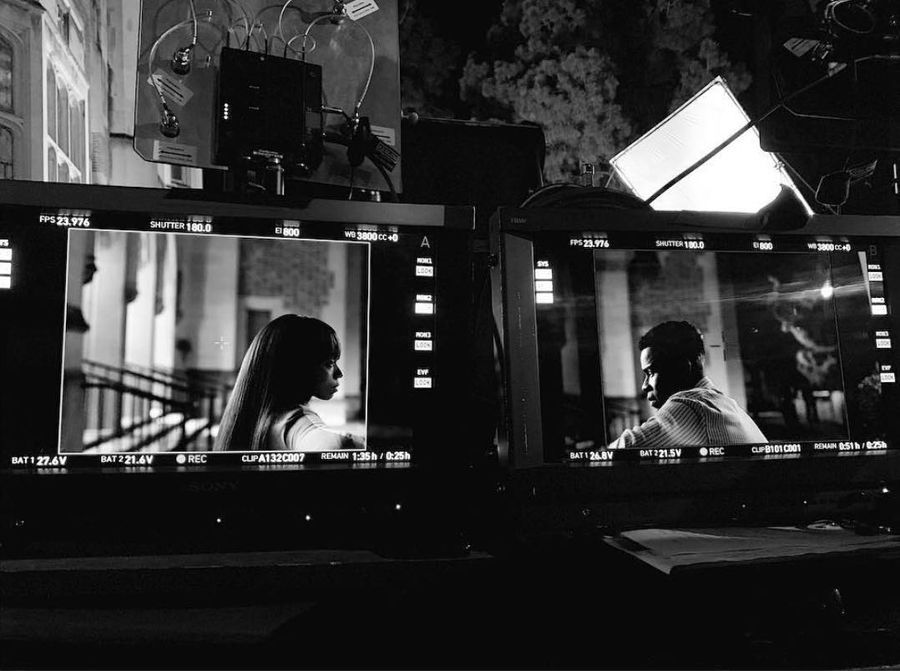

Is there any advice you wish someone gave you when you were just starting out?
I wish someone had given me the advice that you’re the 'get.' Your success is not about them. It’s not their opportunity. It’s not their award. It’s not their box office. It’s really you that they’re looking for. They need somebody that has the fucking balls, the courage to tell the truth in new and dazzling and entertaining ways. That is the basis of the movie industry and the television industry and the story industrial complex. Say things that no one ever said before and say it in ways that no one thought to say before. By the fact that you’re not already in the club, you have the best advantage to do that actually. Stay true to that and then don’t be discouraged when they tell you no. Just add that to the list of reasons why you’ll be fucking lit when they finally see you. Never give up on yourself and your instincts and your dreams and the things that you know in your heart is right. Don’t start cutting away at that to fit in their box. What they really want is for you to break the box.
That’s something that everybody needs to hear because impostor syndrome is so real.
Coppola, Spielberg, Scorsese, De Palma, they famously all had each other. That’s why that generation was so successful. They decided they weren’t gonna fight each other for the jobs. They were gonna uplift each other and recognize that, hey, I don’t want to make the De Palma movie, I’m Francis Ford Coppola. I don’t wanna make a Spielberg movie, I’m George Lucas. Or, hey, we actually make the same movies, let’s make it together. That’s what our generation is — that sense of community is so important.
